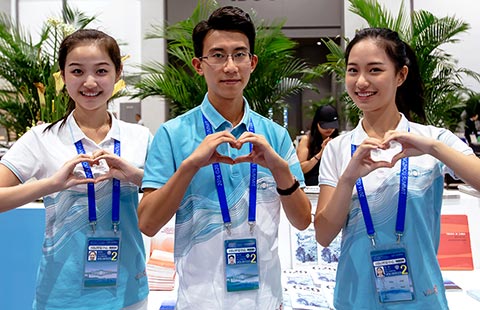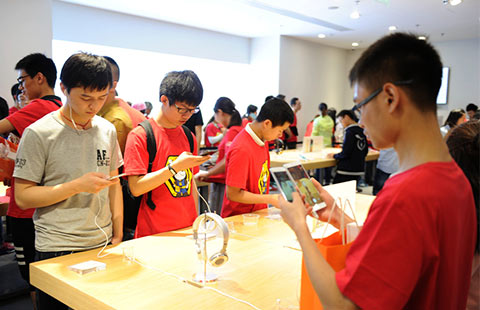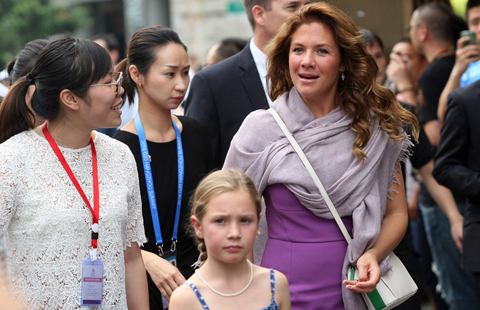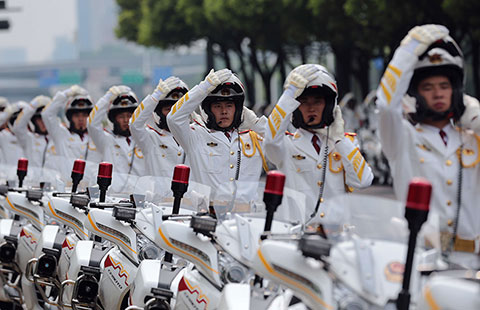Official casts doubt on motives of steel probe
By Ding Qingfen and Du Juan (China Daily) Updated: 2013-01-16 09:51The European Commission is merely posturing when it complains that Chinese steel manufacturers have received "illegal" subsidies, a senior Ministry of Commerce official said on Tuesday.
The true purpose behind the European Union executive body's statement is to pressure Beijing into compromising on other trade issues that have arisen between China and Europe, said the official, who declined to be named.
The commission will not soon announce a final decision in its anti-subsidies investigation into Chinese organic coated-steel products, the official said.
|
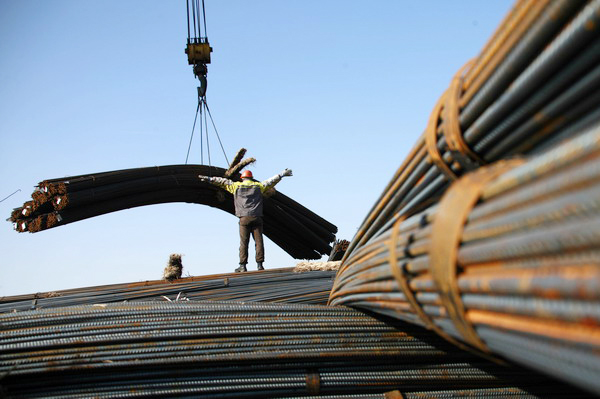 Steel products pile up at a trading market in Huaibei city, Anhui province, Dec 18. [Xie Zhengyi / Asianewsphoto] |
The body started that case in February last year, alleging the Chinese government has provided "illegal" subsidies to domestic steel producers and thus harmed European steelmakers.
In most such investigations, a final ruling is usually preceded by a preliminary one. So it is odd that, in this case, the European Commission plans to issue only a final decision, the official said.
The EU decided to start an anti-dumping investigation into imported China's solar panels in September and an anti-subsidies investigation in November. Final rulings in those cases are to be issued this year.
"The Chinese government has already denied the allegations in the steel case have any truth, but the European Commission is not moving quickly to respond," he said.
Burdened with economic gloom and debt troubles, Europe will naturally try to use the World Trade Organization to protect companies from its own region, said Fan Libo, a professor and researcher at China Institute for WTO Studies under the University of International Business and Economics.
Among the sources of trade friction between China and Europe are Chinese exports' relatively low prices, which foreign countries find it easy to call into question, Fan said.
He said he doesn't think a connection necessarily exists between the separate investigations into solar products and steel.
"Chinese companies should develop quickly to cope with increasing international trade disputes," he said. "Meanwhile, it's better if the government doesn't interfere a lot. Companies, rather than governments, should be the problem solvers and work to expand local manufacturing."
Organic coated steel is mainly used in the construction industry and the manufacture of household appliances.
The amount of steel products exported to the European market declined largely in 2012 after the region increased its own production of the metal, said Wei Zengmin, an analyst at the industry information consultancy Mysteel.
During the first 11 months of 2012, China exported 590,000 metric tons of color-coated steel sheets - a type of organic coated steel - to Europe, accounting for about 12 percent of the total exports of this kind, according to Mysteel.
In the same period of 2011, China exported 860,000 tons of color-coated steel to Europe.
"The European Commission conducted anti-subsidy and anti-dumping investigations into China's steel products before, but mainly into upstream products," Wei said. "It's now looking at downstream products - organic coated steel - which is used in household appliances. This will have a bigger effect on related industries."
Last year, the EU imposed provisional anti-dumping tariffs of up to 58 percent on Chinese steel producers.
Wei said if the EU imposed similar anti-subsidies tariffs on Chinese steel products this time, the resulting high costs would force Chinese companies to give up on overseas markets.
The average price of exported organic coated-steel products is $700 to $800 a ton, with profits of about $10 to $20, said Wei.
Contact the writers at dingqingfen@chinadaily.com.cn and dujuan@chinadaily.com.cn.
Major steel companies see strong Nov profits
Steelmaker bets big on diversification
CISA: Steel industry hit by overcapacity
China's crude steel output rises 6% in Oct
China's steel industry faces reshuffle
Review of China's appeals to WTO
- China's tech giant Huawei supports startups in France
- China's Belt and Road Initiative to stimulate Asian, global economic growth: Bangladesh economist
- China continues to be largest tourist source market of Sri Lanka
- China's metro tech takes Iran onto faster track
- Argentine expert hails China's G20 agenda, efforts for action
- Dubai developers upbeat about easier visa rules for China
- High-income, no weekends: Post-90s property beauty's daily life
- VW to build joint venture with JAC


